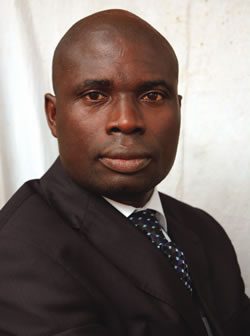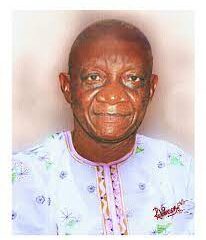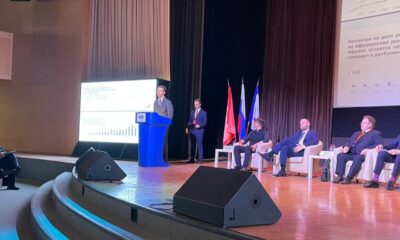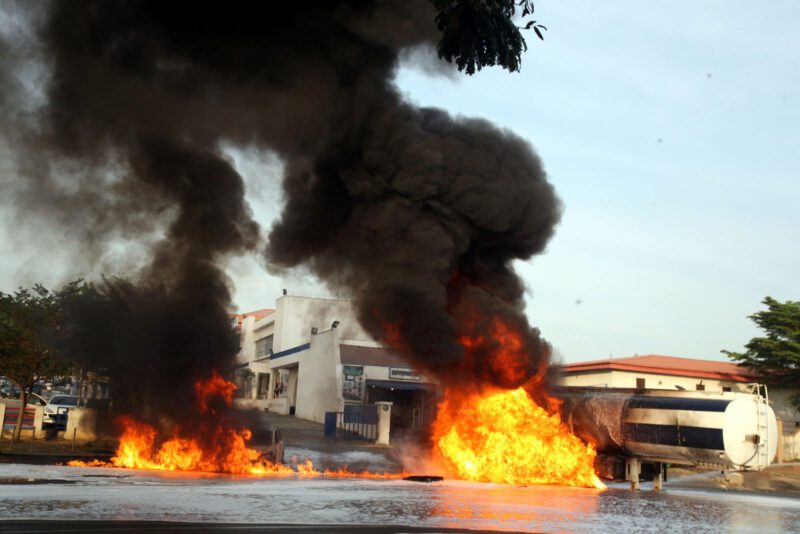Political Issues
No qualms, we can limp to 2019 -By Tunji Ajibade


Tunji Ajibade
We lost a major election but the leader of our party did not blink. What he did instead was to climb a podium to effusively thank the electoral commission for organising a successful election. President Jacob Zuma went on to add that, as a matter of fact, by losing in the election, our country had something for the rest of Africa to emulate. He also called on all elected representatives to build accessible, caring, and efficient local governments, regardless of which party was in charge in municipalities. What Zuma chooses to make of the municipal election is understandable, diverting attention as he does, he being one of the reasons the African National Congress has received such a sharp rebuke from voters. Others happily state what the ANC leader won’t want voiced though. They include the predatory opposition parties, as well as the world out there that’s hungry for the unusual. The unusual did happen in South Africa early August.
Years of accusations that South Africa’s ruling party was becoming overconfident preceded the latest municipal election. Overconfidence comes in diverse forms, of course, and it can descend on any political party that has enjoyed political power for 22 years. Decline is avoidable however if a party chooses to reinvent itself, descending heavily on misconduct among party officials as China’s Communist Party has been doing under President Xi Jinping. In South Africa, this didn’t appear to have happened after the ANC came to power in 1994. The critical mass of South Africans complains about maladministration at every level of the political structure but the party doesn’t seem to be bothered. Add to this the numberless accusations levelled against the president, and the picture is complete as to why the ANC needs to worry about its political future. The outcome of the municipal election restated it loudly.
Elections in South Africa are held at three levels – one for the National Assembly, the provincial legislatures, and municipal councils. All elections take place in a five-year cycle. National and provincial elections are held at the same time, while municipal election holds two years later. Proportional representation is used; this means parties are represented in proportion to the electoral support they enjoy in each constituency. The Electoral Commission of South Africa conducts elections at every level. There were 9,301 council seats up for grabs in the last election. The ANC won 5,124 seats (48.3 per cent), Democratic Alliance won 1,729 seats (13.8 per cent), Economic Freedom Fighters won 731 seats (8.2 per cent), the IFP had 427 seats (4.2 per cent). No party won an outright majority in 26 of the municipalities. This means the ANC won 175 councils, DA won 23 councils, and the EFF got none.
This election means something fundamental in South Africa. The ruling party can only ignore its outcome at its own risk. Yes, the ANC still has the largest chunk of support nationally, but this is dwindling fast and may continue to. The black majority that brought it to power in 1994 had been having a rethink. Nowhere else is this on display than the Nelson Mandela Bay municipality. It had been at the forefront of the anti-apartheid struggle, but here the opposition DA won. This is the same DA that blacks have accused of being a white-dominated political party, but its candidate and the newly-elected Mayor of Nelson Mandela Bay, Athol Trollip, is white. Obviously, black South Africans have begun to vote on issues rather than race. The ANC doesn’t have victory in some other big and economically-important metropolis too, forcing it to seek coalition with opposition parties that desire to kick it out of power.
This outcome isn’t unconnected with the opposition parties that choose to stoically stand and challenge the ANC even in those years when the party was in full dominance. But the DA has also worked on itself. Not long ago, it made the black 36-year-old Mmusi Maimane its leader, and in the aftermath of the latest election, Maimane said the idea that his party belonged to whites had been shattered. He isn’t far off the mark; what with his party’s victory even in Pretoria, the seat of government. Nevertheless, observers have stated that this outcome is less about voting for the DA than taking a stand against the ruling party. How’s that the case?
Urban black voters have their complaints against the ANC. Ineffective service delivery is one. Allegation of corruption against council officials is another. Internal party squabbles aren’t left out, just as there are issues of imposition of candidates by the party. The ANC members had protested against such impositions even to the point of stopping party campaigns from happening in several communities before the latest election. But many disgruntled ANC supporters don’t equally trust the opposition parties, including the Economic Freedom Fighters that some have labelled as irresponsible as a result of its radical political and economic demands. In the event, many ANC supporters stayed away during the polls. The ANC still had larger portions of the votes in areas where there were low turnouts of voters. But it didn’t miss the point the electorate made during the elections. Party functionaries said they would reflect where the party’s support had dropped. In the face of the accusations that make voters turn away, this is putting it mildly, as mildly as the president has done. It’s almost a disdainful disposition that no matter what happens, the ANC will always rule South Africa. In that sense, the party can make it to 2019 the way it is.
I had wondered on this page in the past what it would take South Africa’s ANC to reinvent itself before it’s too late. The latest election results show that the party doesn’t think it’s important. Yet, supporters haven’t been silent about what they don’t like. It’s not only that Zuma himself has become a liability to the image of the ANC, many of the party’s official down the line aren’t popular with the people. One can now state with some level of certainty that in its 22 years of being in power, the only reason the ANC has yet to be voted out is because citizens don’t have a viable alternative. Nelson Mandela Bay and Pretoria are the confirmation. For me, the challenge the ANC has, and which is common to any party that has been in power for so long, isn’t the issue. The real challenge is that the party knows things aren’t right, but it’s too weak internally to do a thing about it. It can’t do a thing about issues of corruption when its leader is personally carrying the same burden. When the leader of a party has an unusually huge moral burden hanging from his neck as Zuma does, the question becomes one of who will bell the cat. What will it take the ANC to regain the trust of most South Africans, ensuring it doesn’t slip down from the current 53 per cent support it enjoys nationally?
It’s been suggested that resignation by Zuma will help. He won’t resign. What then can help the ANC escape further slide in the 2019 elections? The South African economy has stagnated since 2008’s global financial crisis. The country has one of the highest rates of economic inequality in the world, and citizens are impatient with a liberation party that hasn’t delivered what they expect as post-liberation dividends. If citizens will turn to other parties in the next election, it will be because the ANC does more damage to its already poor image between now and 2019. It must also be because opposition parties have gained more the trust of the electorate, and if they perform excellently well in their municipalities. I’m hopeful for the ANC in 2019 though, and this is because of the one party member that I’ve taken a liking to in its leadership – Cyril Ramaphosa. He’s the Vice-President. I think Ramaphosa has a positively solid image that’s an asset to his party. I believe he’s a smart party man who has a mind of his own, but he realises he has to wait for his time. I wish Zuma will resign and let Ramaphosa start the process of regaining people’s confidence for the ANC. Nevertheless, he’s the kind of person who can sanitise the party structure and the process of governance whenever he arrives power. Nelson Mandela had tremendous respect for Ramaphosa whom he mentioned several times in his book, “Long Walk To Freedom”. I think South African voters will warm up to him when 2019 comes.


















